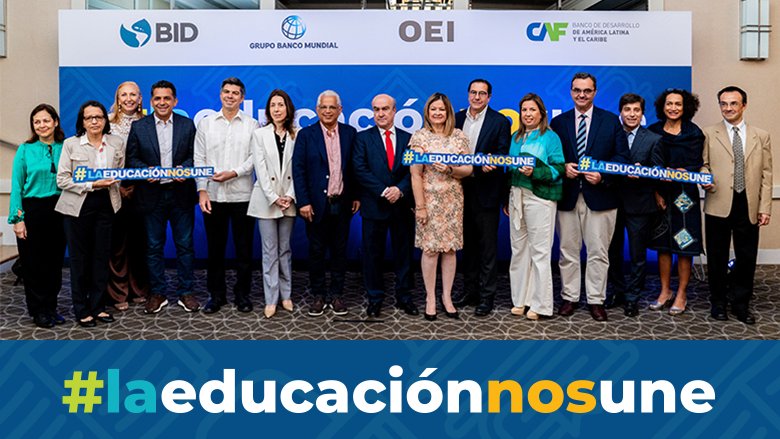Panama, January 30, 2024. In Panama, nearly seven in 10 children cannot read a simple story by the end of primary school. By age 15, six in 10 adolescents still continue their education without attaining minimum proficiency levels in reading, according to data from the World Bank and PISA 2022. These data show that, despite efforts and progress in recent decades, Panama continues to face major challenges in education. To address these challenges, the Inter-American Development Bank (IDB), the World Bank (WB), the Development Bank of Latin America (CAF), and the Organization of Ibero-American States for Education, Science and Culture (OEI) have joined forces to help the country strengthen and improve the quality of education.
As part of this effort, they launched a series of meetings with candidates for President of the Republic and their technical teams, as well as with civil society, the private sector, and others, to identify synergies and areas where they can work together to overcome the education crisis.
The main objective is to share experiences, knowledge, and resources to enable Panama to provide its children, adolescents, and youth with an education and the skills needed to tackle current and future challenges.
These organizations have undertaken to support the country in key areas that will help improve the quality of learning and teacher training and performance and strengthen learning skills focused on literacy and mathematical logical thinking, digital transformation, and curricula adjusted to meet the needs of the labor market.
For the representatives of the IDB, WB, CAF, and OEI, education reforms require continuity, consistency, and a long-term commitment. The time to act for education is now. Despite progress, major challenges remain and have deepened in the wake of the pandemic. As organizations, we are united in purpose to support Panama’s efforts to raise the quality of education. This will require the commitment and shared purpose of all actors in civil society, teachers’ unions, the private sector, and the government.
As part of their initial actions, the representatives from the IDB, WB, CAF, and OEI extended invitations to the candidates for President of the Republic, and met with Martín Torrijos, the presidential candidate from the Popular Party, José Isabel Blandón, the vice presidential candidate from the alliance between the Democratic Change Party and the Panameñista Party, Aida Ureña de Maduro, the vice presidential candidate from the Social Independent Alternative Party (PAIS), Ricardo Lombana, the presidential candidate from the Other Way Movement (MOCA), and Richard Morales and Athena Athanasiadis, independent vice presidential candidates. They discussed priority challenges and identified areas for improvement, effective strategies, and recommendations that allowed them to jointly reflect on the importance of ensuring that education is a State policy that transcends governments and generations.
Learn more about the World Bank’s work in Latin America and the Caribbean.
For more information on the World Bank’s work in Panama, visit our website.
Visit us on Facebook.
Stay informed via Twitter.
Watch our YouTube channel.

